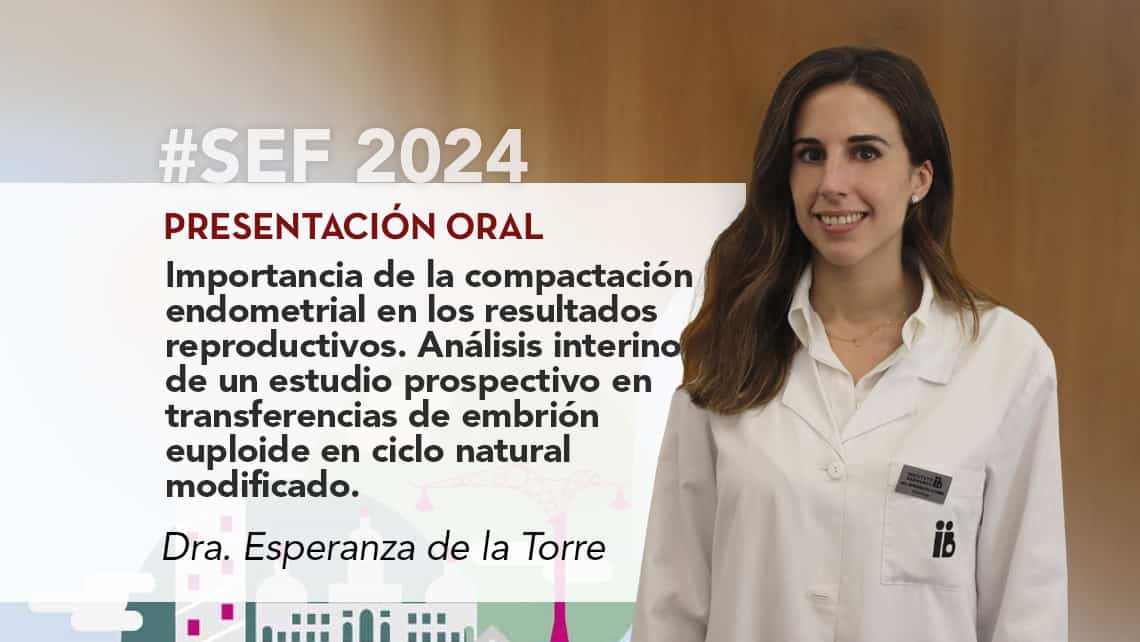A study by Instituto Bernabeu concludes that it is not necessary to control the endometrium around embryo transfer with ultrasound scans
May, 2nd 2024

- Dr Esperanza de la Torre is leading a study on the use of this procedure. She will present this study at the next edition of the SEF congress
- It is important to discard what does not add value, as patients are sometimes overloaded with unnecessary tests and treatments
Dr Esperanza de la Torre, gynaecologist specialising in assisted reproduction at Instituto Bernabeu, will present the results of a study on embryo implantation in modified natural cycles at the next Spanish Fertility Society (SEF in Spanish) congress.
The study, which was carried out in a homogeneous sample of patients who underwent transfer of a genetically tested and healthy embryo in a modified natural cycle, aims to clarify whether the ultrasound changes observed in the endometrium around implantation are important for reproductive outcomes.
Despite great advances in assisted reproduction in recent years, the exact mechanism by which an embryo implants inside the uterus is still a mystery. A better understanding of this process is a challenge for assisted reproduction professionals, and any advances could help to improve patient care.
Among the possible factors that may influence whether the endometrium lining the uterine cavity is receptive to an embryo is its appearance and thickness in the first phase of the cycle, where oestrogen is the dominant hormone, and which appears to be related to pregnancy rate. However, the role of the changes observed in the second phase of the cycle, following the action of progesterone, namely its reduction in thickness or “compacting”, is not clear.
Preliminary results of the study, which is still ongoing, seem to indicate that endometrial thickness around implantation is not predictive of pregnancy rate and pregnancy outcome. “These results are very interesting and reaffirm the current practice of limiting ultrasound monitoring to the first phase of the cycle,” says Dr de la Torre. In addition, “we have observed that, with the modified natural cycle preparation, it is extremely rare to find low levels of progesterone in the blood, and that even in these circumstances they do not seem to have an impact on reproductive outcomes, unlike what happens in artificial cycles“.
Thanks to this study it will be possible to avoid unnecessary controls such as ultrasound scans in the second phase of the cycle and, probably, blood progesterone controls in the natural cycle. “In this uncertain process that is embryo implantation, it is also important to discard what is of no value, as sometimes patients are overloaded with unnecessary tests and treatments that only wear them down further along the way,” said Dr de la Torre.
